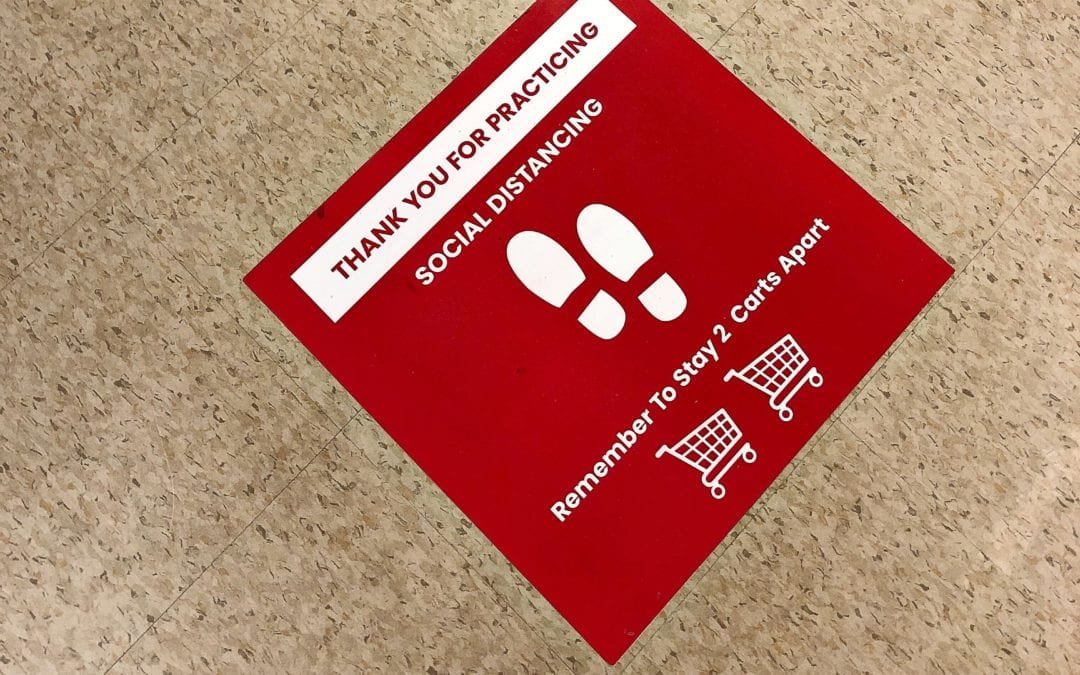Through May 26, the Colorado Department of Public Health and Environment was reporting 24,565 cases of COVID-19, the respiratory disease tied to the coronavirus.
Statewide, there have been 1,352 deaths among people with COVID-19 — including 1,114 deaths directly attributed to the disease — and 4,160 people hospitalized.
The county has seen 1,590 cases, 241 hospitalizations and at least 89 deaths, according to El Paso County Public Health.
While El Paso County obtained a variance allowing restaurants to reopen to the public May 23, areas of the state that didn’t receive a similar go-ahead (and those who don’t have stricter precautions in place) may open to the public starting May 27, Gov. Jared Polis reiterated at a news conference May 26.
Restaurants can open with 50 percent indoor capacity (or up to 50 people, whichever number is smaller), but can accommodate additional outdoor customers through patio seating or locally permitted use of other space outside their buildings. Breweries and bars can only open if they have food service on premises.
– Advertisement –
Summer day camps for children are also allowed to open June 1 with precautions in place. Campers must wear a mask whenever possible, and must congregate in groups of fewer than 10 people indoors or 25 people outdoors.
“It was a month ago, April 26, where we ended the stay-at-home order for Colorado,” Polis said. “And we knew going into that, that that was a bet on the people of Colorado, a bet on the people to make the right decisions. It was a risk.”
Ski areas will be allowed to reopen — minus indoor dining and bars — which Polis called “wonderful news.”
Arapahoe Basin in Summit County plans to reopen May 27, he said.
A new report from the Colorado School of Public Health shows that if people maintain around 65 percent social distancing (less than half of the close interactions they would have during pre-pandemic times), the state can prevent a surge in COVID-19 cases that would overwhelm hospitals.
Even if additional restrictions lift later in June, older adults will need to have less than half of the interactions they normally would, or hospitals could still become overwhelmed, the report found.
“We reached roughly 80 percent [social distancing] for the stay-at-home, so in coming down we have some leeway in terms of the margin between where we were and where we’re going to get to 65 percent,” Dr. Jonathan Samet of the University of Colorado School of Medicine said at a news conference announcing the report’s findings.
The Colorado Department of Human Services received federal approval to provide benefits to about 363,000 children who are unable to receive meals at school, the department announced.
Through the Pandemic Electronic Benefit Transfer program, or P-EBT, children who are eligible for free or reduced-price meals (and enrolled in a school that participates in the National School Lunch Program) can get extra food benefits, in addition to the grab-and-go meals that many schools have already been offering.
The P-EBT benefits amount to $5.70 per student per day of school closure, and families can expect them to be delivered starting around mid-June, DHS says in a statement.
For more information, visit colorado.gov/pacific/cdhs/colorado-food-assistance-and-covid-19.
Polis took a brief moment of silence during his May 26 news conference (the day after Memorial Day) to honor the military service members who’ve given their lives for the country.
Veterans face unique economic and health-related challenges during the pandemic. According to an April report from the Bob Woodruff Foundation, approximately 14 percent of employed veterans nationwide work in the five industries most likely to witness immediate layoffs due to COVID-19.
“The COVID-19 pandemic creates at least three conditions (emergent trauma, loneliness due to social isolation, and unplanned job or wage loss) that could culminate in a ‘perfect storm,’ threatening the mental health of many veterans,” the report summary notes.
Having trouble accessing unemployment benefits? You might find it useful to attend a virtual town hall on unemployment insurance, hosted by the Colorado Department of Labor and Employment on May 29.
Participants can register online for an English town hall at 9:15 a.m., or the Spanish town hall at 11:30 a.m. After registering, you’ll receive more information on how to join online or via phone.
CDLE will address out-of-state wages, tips for claim filing, returning to work and eligibility, backdating and accessing online self-services.
The department has also posted a fact sheet online with more information on workers’ rights during the pandemic.
This content was originally published here.

